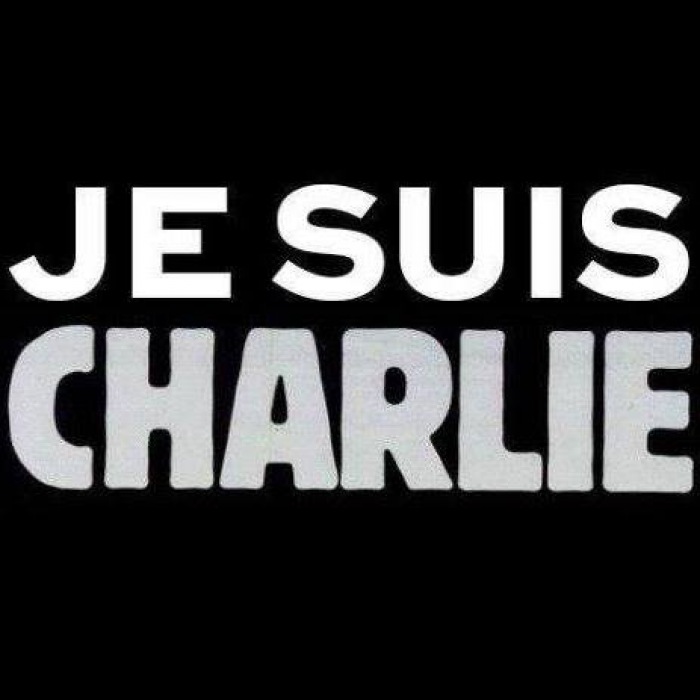Petition to Delete the "Blasphemy Section" Rejected
Giordano Bruno Foundation criticizes argumentation of the German Bundestag
The Petitions Committee of the German Bundestag has rejected the petition submitted by gbs spokesman Michael Schmidt-Salomon to delete the blasphemy section 166 of the German Criminal Code ("StGB"). "In view of the dominance of CDU/CSU representatives in the Petitions Committee, we expected this result," said Schmidt-Salomon. "Nevertheless, the argumentation in the explanatory statement is astonishingly out of touch with reality. The responsible authorities seem to completely ignore the fact that this reactionary section further motivates religious fundamentalists to threaten artists who are critical of their beliefs".
Schmidt-Salomon had submitted the petition to the Petitions Committee of the German Bundestag one day after the attack on the French satirical magazine "Charlie Hebdo". In the petition's explanatory statement, it was argued that the paragraph had in practice "led to a complete reversal of the perpetrator-victim relationship, resulting in well-known artists such as Kurt Tucholsky or George Grosz being reprimanded". Public peace was never threatened by critical art, "but by religious or political fanatics who were not able to rationally process the artistic questioning of their ideology”.
"By deleting § 166 StGB", the petition argued, "the German state would also comply with an important demand by the UN Human Rights Committee," which had declared that "bans on depictions of lack of respect for a religion or other belief systems" were incompatible with the "International Covenant on Civil and Political Rights". Last but not least, the abolition of the "medieval dictatorship section" (Kurt Tucholsky) would also be an "appropriate constitutional reaction to the intimidation attempts of militant Islamists"- because by deleting section 166 StGB without replacement, the legislator would "make it unmistakably clear that the freedom of art in a modern open society is to be given precedence over the 'hurt feelings' of religious fundamentalists”.
In the subsequent rejection of the petition, which with over 11,000 co-signers had found greater support than 98 per cent of all previous Bundestag petitions, it is stated that § 166 StGB, since the 1969 reform of the criminal law, no longer protects "religion and worldview as such" or "religious feeling", but "public peace". Therefore, the corresponding declaration of the Human Rights Committee "is not relevant here", which is why the Petitions Committee could support the request.
Encouraging the rule of force
Schmidt-Salomon explained that obviously neither the Petitions Committee nor the Federal Government, which in the course of the procedure expressed its opinion on the petition, had recognized the real problem. "It is true that §166 no longer criminalizes mere criticism or insulting of a religion, but only those forms of criticism that are likely to endanger public peace," said the philosopher, "but paradoxically, it is precisely this protection of public peace that leads to a threat to public peace! In its wording, § 166 additionally incites the faithful to take militant action against satirical art. For only in this way can they prove that public peace is endangered by the alleged violation of their religious feelings".
"Involuntarily", according to Schmidt-Salomon, "this view was confirmed by Joseph Ratzinger himself, the later Pope Benedict XI, who stated with regard to § 166 StGB: 'If the jurisprudence justifies the capability to disturb peace with the absence of riots, it indirectly gives an invitation to forcefully impose one's own convictions and thus to the right of the fist'. Ratzinger pleaded at the time to make § 166 StGB more strict and to make the mere 'insult' of a religion or ideology punishable, which would, however, undermine the principles of an open society in which every individual has the right to freely express their opinion".
Debate on freedom of art and expression launched
Since he had not expected that the petition would lead to the deletion of §166 StGB anyway, Schmidt-Salomon was not disappointed by the reaction of the Petitions Committee. He and the Giordano Bruno Foundation, he said, were primarily concerned with initiating a new debate on freedom of art and expression - and this had worked surprisingly well: "Unlike the cartoon controversy, for example, when conservative politicians pushed forward to demand a stricter version of §166 StGB, this time we were not on the defensive, but were able to steer the debate in a more liberal direction from the outset. In the media, which quickly picked up on our press release, comments in favour of abolishing the old censorship paragraph fortunately prevailed, despite the negative stance of the governing coalition".
Schmidt-Salomon emphasized that in the course of the debate Thomas Fischer, presiding judge at the Federal Court of Justice in Karlsruhe, had also called for the deletion of § 166 StGB without replacement: "The fact that Thomas Fischer, one of Germany's leading lawyers, considers the section to be 'superfluous and antiquated' shows that things are clearly changing. At some point, I am sure that the majority of our politicians will understand that a section restricting the freedom of art and expression and motivating religious fanatics to resort to the law of force has no place in a modern constitutional state.

